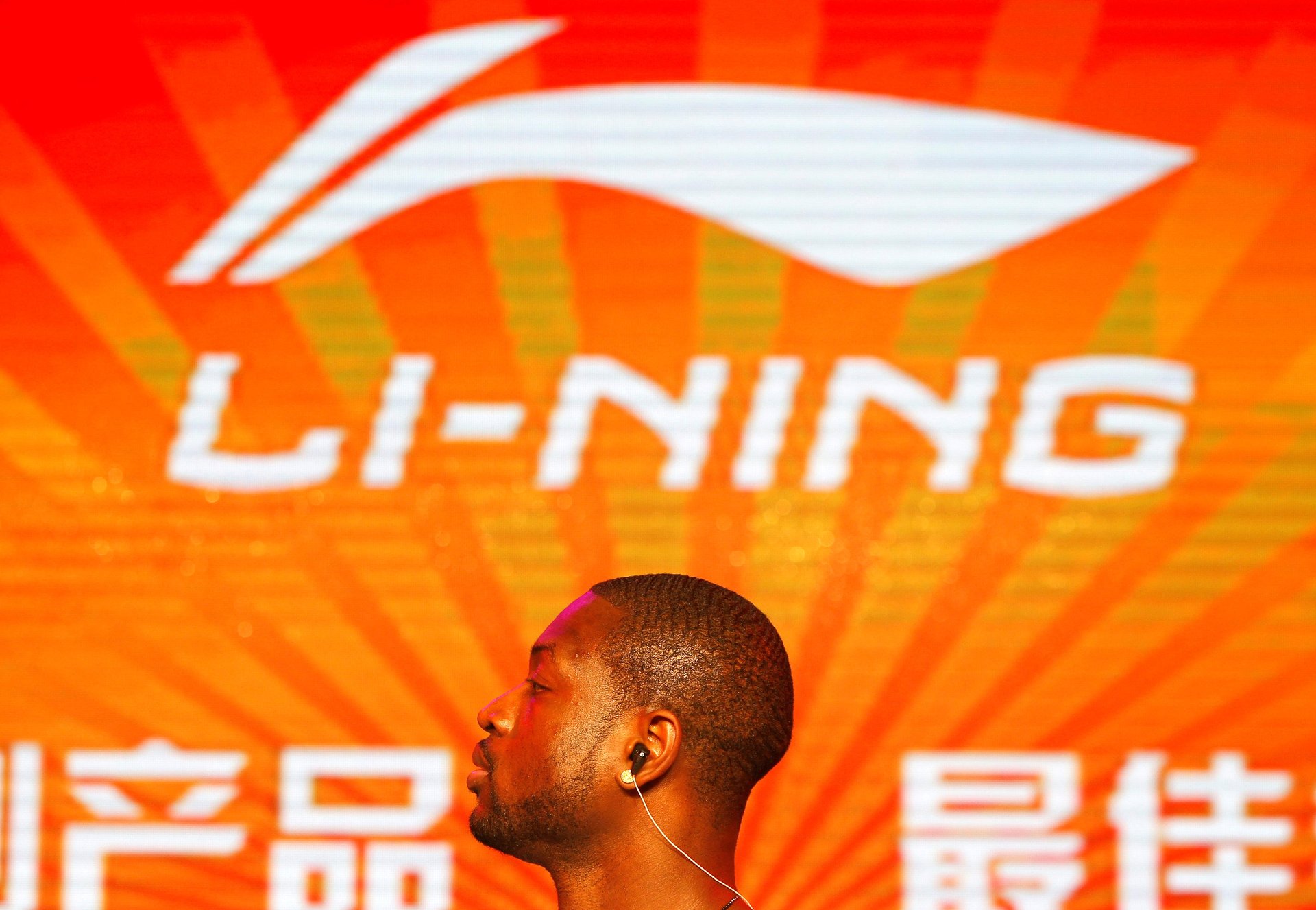China’s foreign brands boycott has pushed up the resale price of Chinese sneakers
The Chinese consumer boycott of foreign brands including Nike and Adidas over Xinjiang cotton is creating new opportunities for the country’s domestic players, especially premium sneaker makers.


The Chinese consumer boycott of foreign brands including Nike and Adidas over Xinjiang cotton is creating new opportunities for the country’s domestic players, especially premium sneaker makers.
On the popular sneaker resale platform Dewu, a pair of All Star Li-Ning Way of Wade 4—sneakers designed by Chinese sports brand Li-Ning and National Basketball Association star Dwyane Tyrone Wade—was at one point being offered for around 48,889 yuan ($7,474), or about 30 times their original sale price of 1,499 yuan, according to state-owned tabloid Global Times. Meanwhile, wow7 The Moment, a limited edition of sneakers under Li-Ning’s Wade design series, also recently saw its price pushed up (link in Chinese) from 1,699 yuan to around 30,000 yuan, according to Chinese outlet the Security Times. A series of Chinese brand Anta’s sneakers with the theme of Japanese anime figure Doraemon jumped from 499 yuan to 4,599 yuan as well, according to the publication.
While speculative trading of sneakers in China (and globally) is not new, Chinese “sneakerheads,” who trade highly desired shoes for quick profits, generally focus mostly on foreign products like Nike’s Air Jordan and Adidas’s Yeezy. The frenzy in sneaker trading reached such heights that in late 2019 the Chinese central bank warned about potential financial risks in this business, including illegal fund-raising. According to Chinese news site 36Kr, it’s unusual for prestige Chinese brands to crack 10,000 yuan on resale.
The recent passion for Chinese sneakers appears to be at least in part a result of China’s boycott of some foreign apparel companies, who have faced a major backlash in the country for their statements pledging not to use suppliers in the Xinjiang region, which produces about 20% of the world’s cotton. Beijing is accused of detaining an estimated 1 million Uyghurs and other ethnic minorities in internment camps over recent years.
“…after the Xinjiang cotton incident, the risks of speculating on these brands caused by market uncertainties due to their vague attitude are growing, so many scalpers are shifting to domestic brands to avoid risks,” said a veteran Chinese shoe collector quoted by Global Times.
While Li-Ning stands out as a brand that has acquired the type of cachet usually reserved for foreign brands, other Chinese companies have also been the focus of patriotic buying in the past, such as smartphone maker Huawei. In 2019, the Wall Street Journal cited a Brunswick Group survey that found that more than half of the people surveyed had avoided buying a US product to show support for China as trade tensions between the two countries increased.
There are signs that Beijing thinks sneaker traders are taking advantage of patriots, however.
“Behind the surge of domestic sneaker prices is the opportunity brought by consumers’ patriotic buying for home brands,” said an editorial yesterday (April 6) in state-owned the Paper.cn. “But this opportunity has been used by some sneaker scalpers who hyped up the shoes’ price.”
People’s Daily, the official outlet of the Communist Party, said in an editorial last week that while it is normal for consumers to turn to home brands due to foreign players’ “unreasonable and rough” boycott of Xinjiang cotton, some sneaker traders have disrupted the market. “To some extent, [the sneaker traders] are consuming the patriotism of users,” it said (link in Chinese).
Soon after the criticism from state media, Dewu announced yesterday that it had deleted the listings of the three sneaker editions from Li-Ning and Anta for their “excessive price fluctuation,” noting that prices on the platform are set by the sellers and not the app. In addition, the app said it took down another 20 domestic sneakers whose prices also fluctuated abnormally. Despite the increased interest in home brands, the app has continued to feature brands like Nike on its home page, as well as offering listings of the shoes on the app, according to a search by Quartz today.
Dewu didn’t immediately reply to a request for comment.